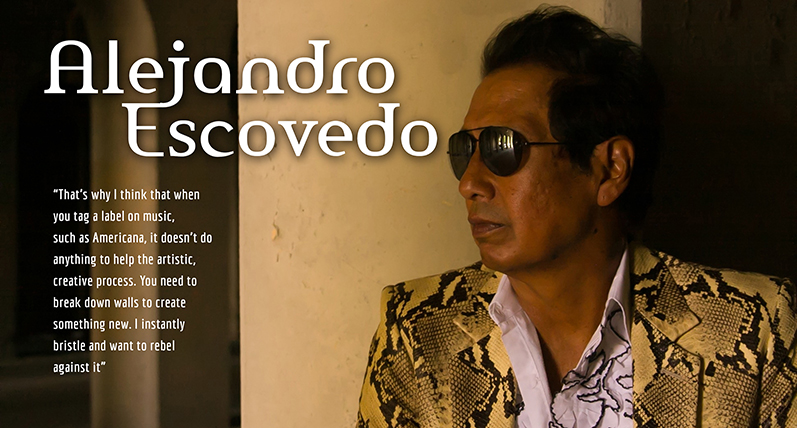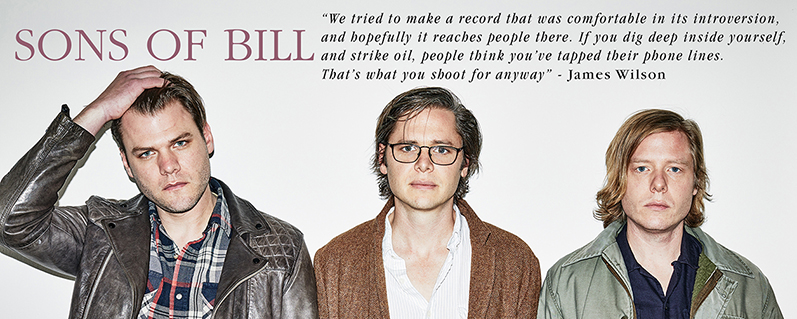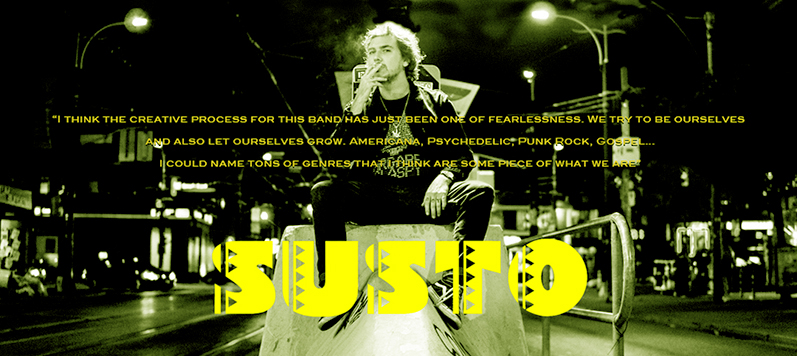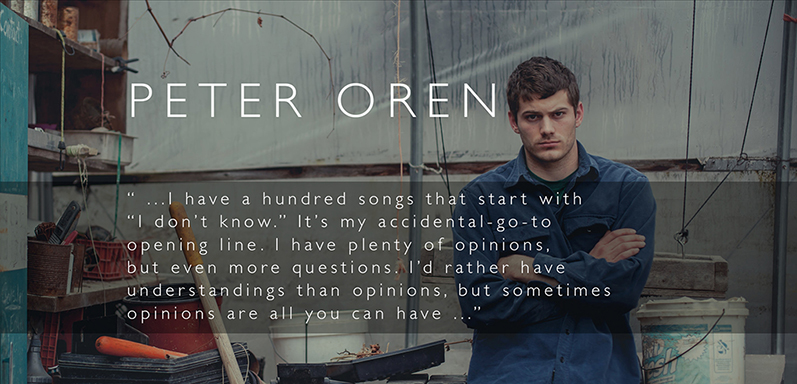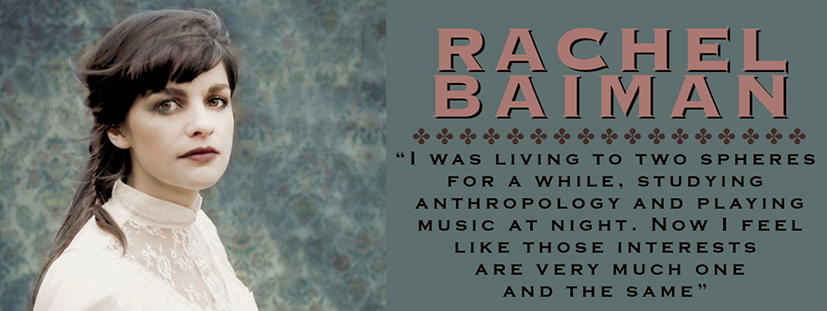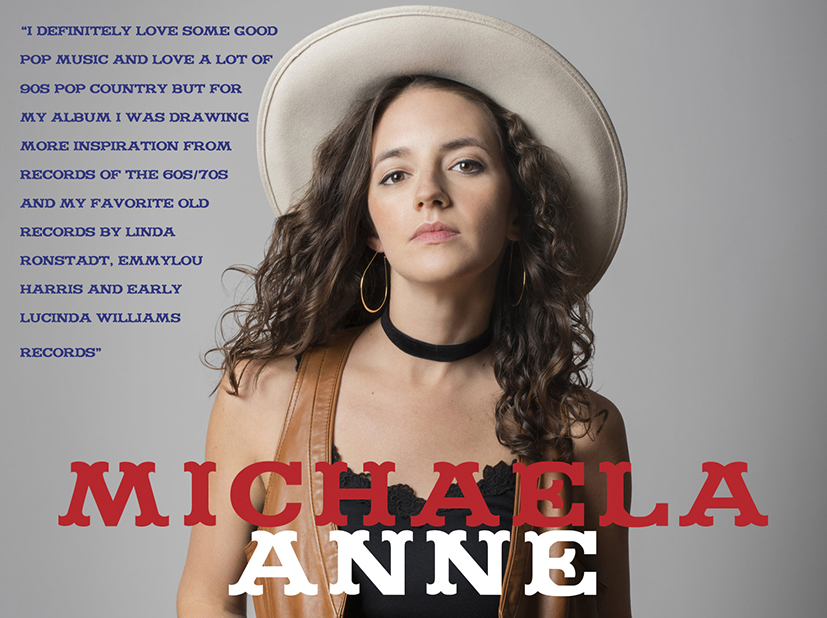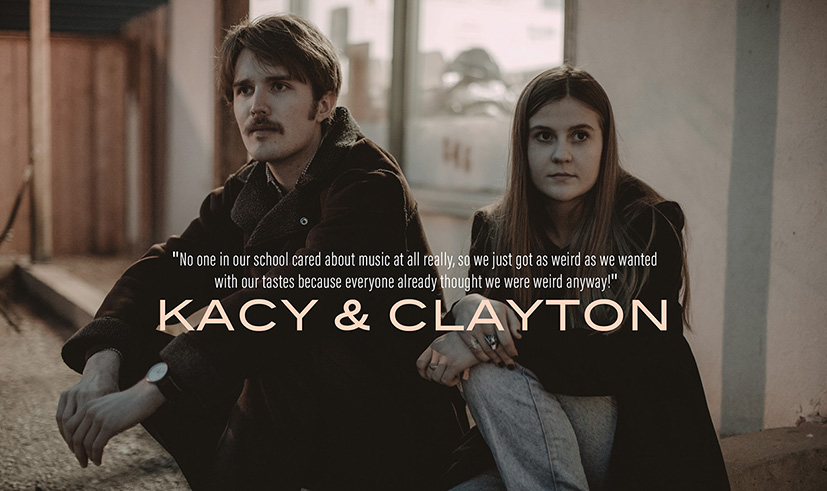
My first encounter with Kacy Anderson and Clayton Linthicum was when they appeared at The Kilkenny Roots Festival in 2015. The young duo, teenagers at the time, were chaperoned by Ryan Boldt of Deep Dark Woods fame, who was playing solo at the festival, having performed with his band at Kilkenny Roots a few years earlier. Boldt has been like a father figure to Kacy & Clayton, bringing them on tour with him and plugging them from an early stage in their careers as Kacy explained. ‘Ryan’s been very encouraging to our career not only advocating our music, but as an example of how to become touring musicians outside of Saskatchewan’
Second cousins, Kacy and Clayton early acoustic albums suggested a maturity in both writing and playing well beyond their years and they eventually came to the attention of Wilco’s Jeff Tweedy, who invited them to open for Wilco at The Fillmore in San Francisco. So impressed was Tweedy that he offered to produce their latest album, The Siren’s Song, at Wilco’s recording studio The Loft in Chicago. The album, released in The States in 2017and in Europe in the spring of this year, unlike their previous work as a duo, features bass and drums to supplement Anderson’s striking vocals and Linthicum’s finger picking guitar style. The inclusions of the additional instruments give their songs extra depth, something no doubt recognised by Tweedy, whose production rewards the listener with a very late 60’s early 70’s feel, recalling in particular the U.K. folk rock sounds of that era, together with the flower power Laurel Canyon vibe. I get the impression talking to Kacy that working with Tweedy was very much a teacher and pupil scenario, with little time wasted in the studio and I even detect an innocent reverence of the whole experience. ‘Jeff has an endless amount of gear and I got to play a couple of his guitars on the album. His presence was respected which made for timely sessions. We didn’t do any messing around because we knew he wasn’t going to be staying all night for us to get a take!’.
The album features a number of co-writes between Kacy & Clayton ‘I find that finishing songs with Clayton gives me more confidence to bring them forth to other people to listen to because it’s been filtered through another set of ears that I trust with all of my heart,’ adds Kacy. The album tour has them performing with a band rather that the duet format of previous tours, but has she a preference for one over the other? ’It’s nice to have the band with us on tour since the majority of the latest album has a rhythm section. Playing as a duo feels comfortable also as that’s how we started out. Playing as a duo also gives us an opportunity to do some traditional folk songs we love that we haven’t arranged with the full band. The person paying us gets to decide their preference I suppose’.
Kacy comes across as a particularly grounded, practical and polite young lady, no doubt a result of her upbringing in the remote town of Wood Mountain, a four-hour drive to Saskatchewan, where the possibilities to witness live music was restricted. ‘We saw local rodeo dance bands and went up to Regina or Saskatchewan every once and a while to see people like Bob Dylan, Neil Young, John Fogerty perform at the Stadiums’ she explains.
Self-confessed music nerds who were both experimenting with old folk and country sounds, I wondered how that resonated with their school peers given that they are not the music genres normally associated with teenagers. ‘No one in our school cared about music at all really, so we just got as weird as we wanted with our tastes because everyone already thought we were weird anyway!’.
With the nearest record store, a five-hour bus ride to pick up second hand albums and the internet unreliable in The Wood Mountain Uplands, the opportunities to research their combined fascination of old time country and folk music was limited. A neighbour who grew up on 40’s and 50’s country legends Hank Snow and Bob Willis was one source and The Carter Family and Doc Watson’s music was discovered on a cassette tape of Kacy’s Grandfather. Given that the majority of today’s music lovers and artists have an unlimited source of information available at their fingertips via the internet, it’s refreshing that the majority of Kacy & Clayton’s song writing ideas originated from stories passed down from family members and neighbours, very much in keeping with the origins of the old timey music that fascinates them so much. The daily three-hour journey to and from school also gave her the chance to devour books on the history of music and any biographies she could get her hands on.
Rehearsing involved driving the six miles from each other’s houses – illegally initially given that they were under the legal age to own a driver’s licence – and their opportunities to perform live were restricted to playing at a senior citizens home on Sunday evenings. It’s remarkable that they are making waves in the Americana scene given these impediments. However, it’s still no gravy train, four albums later and even support slots with Wilco and an upcoming tour opening for The Decemberists. As Kacy explained, ‘It would be nice to get down to play The Americana Fest again in Nashville, but unfortunately it’s very expensive to do’.
In the meantime, their aim is to attempt to maintain a steady album/tour cycle and see where that brings them ‘Our plan is to keep making an album every couple of years and touring to support it. I hope to repeat the cycle as many times as possible. I think it’s pretty much impossible for us to break into the market in The States but we will keep trying our best’.
I wondered where the U.K. folk influences came from given how striking they are on the album. Kacy replied, ‘It began for me about 8 years ago when I started listening to Fairport Convention, Anne Briggs and Shirley Collins on my iPod riding the bus for an hour and a half to school every day and then back again’.
Comparisons could be made with Dori Freeman, another independent young female artist also residing in the equally rural setting of Galax Virginia and who has an equally passionate love of old time music. Both Kacy and Clayton appear on her latest album Letter Never Read and I wondered where the connection had been made. ‘We became friends over the World Wide Web a couple years ago and it lead to Clayton and I playing a little on her album, ‘She’s a wise woman and I have a great appreciation for her support of our bands existence’.
Interview by Declan Culliton


